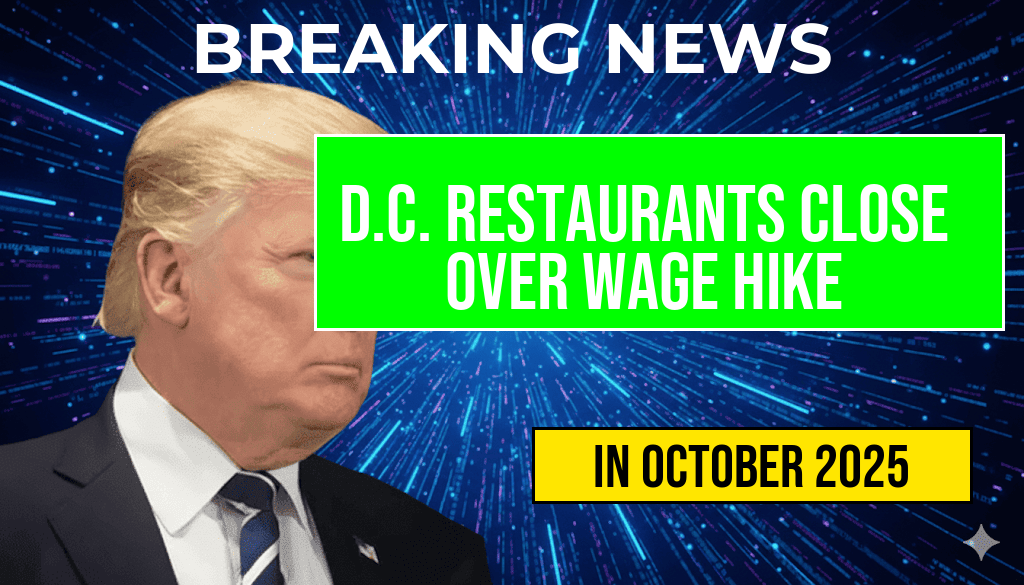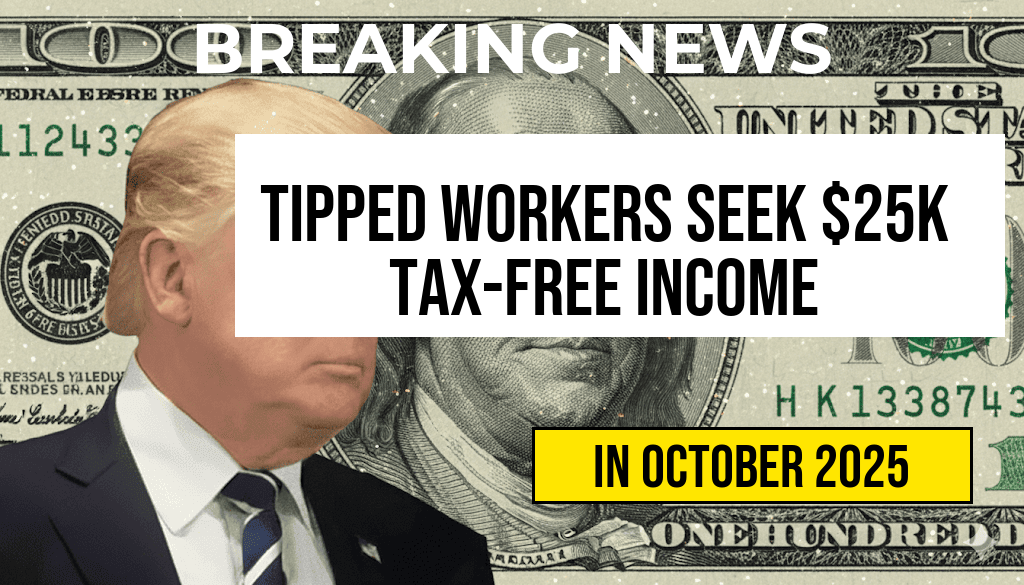D.C. Reverses Plans to Increase Tipped Minimum Wage, Potentially Costing Servers Thousands Annually
The District of Columbia has halted its previously announced plan to raise the tipped minimum wage, a move that could result in servers losing up to $4,160 annually compared to the original proposal. The decision, announced by local officials on Monday, comes amid mounting concerns from restaurant industry stakeholders and advocacy groups about the economic impact on service workers. Originally, the plan aimed to incrementally increase the tipped wage over several years, aligning it more closely with the standard minimum wage. However, recent legislative changes have paused this trajectory, leaving many servers uncertain about their future earnings.
This reversal underscores the ongoing debate surrounding tipped wages and their implications for workers’ income stability. Servers in D.C. often rely heavily on tips to supplement their base wages, which are significantly lower than the standard minimum. The stalled increase has sparked both disappointment among hospitality workers and praise from business groups wary of potential labor cost hikes. As policymakers reassess the wage structure, many are scrutinizing the financial impact on individual servers and the broader economic health of local restaurants.
Background on Tipped Wage Policies in D.C.
Legal Framework and Previous Proposals
The District’s tipped wage system allows employers to pay servers a base wage lower than the standard minimum, provided tips bring their total earnings up to at least the minimum wage. Currently, the tipped minimum in D.C. stands at $5.35 per hour, below the regular minimum wage of $16.10, effective as of July 2023.
Earlier this year, city officials proposed gradually increasing the tipped minimum to reach parity with the standard wage over a five-year period. The plan aimed to improve income stability for servers, many of whom depend heavily on tips, especially during economic downturns or slow seasons. The phased approach was designed to ease the financial burden on restaurant owners while providing a clear pathway toward fairer wages for workers.
Reasons for the Reversal
The recent suspension of the wage increase follows opposition from restaurant associations and small business advocates, who argued that sudden or rapid hikes could lead to higher operating costs, potential layoffs, and increased menu prices. Critics of the phased increase also expressed concerns about the volatility of tip-dependent income and the risk of reduced tips if patrons perceive higher menu prices.
City officials cited these concerns in their official statement, emphasizing the need to balance fair compensation with economic sustainability for local businesses. The decision aligns with broader national debates over tipped wages, with several states and cities reconsidering their policies in light of economic pressures and labor market shifts.
Impact on Servers and the Local Hospitality Industry
| Scenario | Additional Annual Income |
|---|---|
| Original Plan (with phased increase) | $4,160 |
| Current Halted Plan | $0 |
| Potential Loss (compared to original plan) | $4,160 |
For many servers, this pause could mean a significant reduction in annual earnings. Based on average tips and hours worked, some estimates suggest that individual servers could lose up to $4,160 per year. This figure accounts for average weekly tips and hours worked, which vary between establishments and individual roles.
Worker Perspectives
- John Davis, a server at a downtown restaurant, expressed disappointment, saying, “Tips are what keep my income afloat. Delaying the wage increase feels like a setback after years of work.”
- Maria Lopez, who has worked in hospitality for over a decade, highlighted the financial uncertainty: “It’s hard to plan when your earnings depend so much on tips, especially with the economy still shaky.”
Business Community Response
- Many restaurant owners welcomed the halt, citing concerns over rising labor costs during a period of inflation and economic uncertainty.
- Conversely, advocacy groups argue that fair wages are essential for reducing income disparity and improving working conditions for tipped workers.
Looking Ahead: Policy Debates and Potential Reforms
The decision to pause the tipped wage increase signals ongoing tensions between economic viability for restaurants and fair compensation for workers. Labor advocates continue to push for reforms that would eliminate the tipped wage system entirely, advocating for a living wage regardless of tips.
Meanwhile, some policymakers suggest that a comprehensive review of wage policies could lead to alternative solutions, such as implementing a higher standard minimum wage combined with tip-sharing arrangements. These discussions reflect broader national trends, where states like California and New York are exploring different models to address wage disparities in the service industry.
For further context on tipped wages and related policies, the Wikipedia page on minimum wage provides an overview, while Forbes offers insights into industry impacts and economic considerations.
Frequently Asked Questions
What is the main change to the tipped-wage increase in D.C.?
The District of Columbia has halted the planned $2 increase in the tipped minimum wage, meaning servers will not see this raise as originally scheduled.
How much could servers potentially lose annually due to this change?
Servers could lose up to $4,160 annually compared to the original plan that included the $2 increase in their tipped wages.
Why was the tipped-wage increase halted?
The increase was stopped due to budget considerations and concerns over economic impacts on service workers and local businesses.
What impact does this decision have on servers’ earnings?
This decision reduces potential income for servers, as they will not receive the additional $2 per hour increase in their tipped wages, affecting their overall annual earnings.
Will the tipped-wage increase be reconsidered in the future?
There is a possibility that the tipped-wage increase could be revisited, but currently, no new timeline has been set for implementing the raise.










